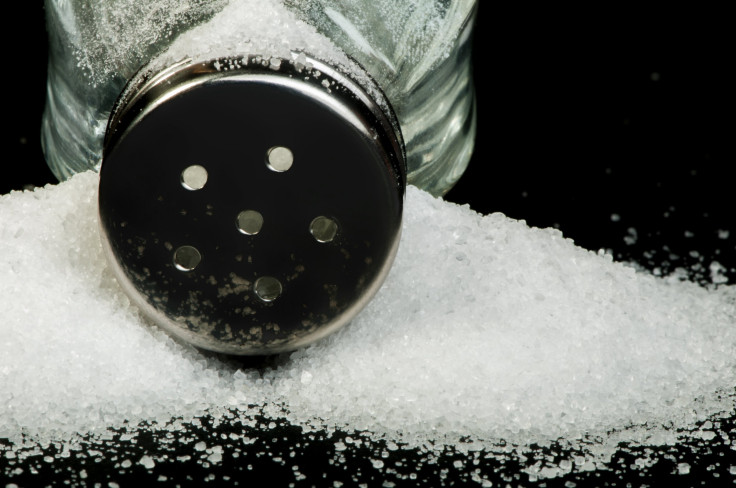Blood Pressure And Heart Condition Risks Aside, High-Salt Diets May Improve Immune System

Salt is in everything from potato chips to salad dressing. It sprinkles its way into thousands of commonly consumed food items in America. Cardiologists label salt as the culprit for many heart and other health conditions, especially because one out of three adults has high blood pressure. But in a new study published in Cell Metabolism, German researchers reveal a potential immune benefit from a diet loaded with salt.
"Up to now, salt has been regarded as a detrimental dietary factor; it is clearly known to be detrimental for cardiovascular diseases, and recent studies have implicated a role in worsening autoimmune diseases," said the study’s coauthor Jonathan Jantsch, a microbiologist at Universitätsklinikum Regensburg and Universität Regensburg, in a press release. "Our current study challenges this one-sided view and suggests that increasing salt accumulation at the site of infections might be an ancient strategy to ward off infections, long before antibiotics were invented."
It all started when researchers noticed an unusually high amount of sodium in mice with bacterial skin infections. When they took a closer look, they found their high-salt diet boosted the activity of immune cells called macrophages, which were able to heal the mice from infection. The team found the infected areas had attracted salt to the areas, meaning there could be a possibility for immune protection.
Researchers are going to continue to examine the benefits of a high-salt diet, but in the meantime remind the public the negative health effects far outweigh the immune protection they observed. The findings, though, may lead to a supplement version of sodium in order to protect the heart and other organs from the negative impacts high-salt diets have on the body, while still achieving a positive immunal response.
"A further understanding of the regulatory cascades might not only help to design drugs that specifically enhance local salt deposition and help to combat infectious diseases," Jantsch said, "but also may lead to novel strategies to mobilize sodium stores in the aging population and prevent cardiovascular disease. We also think that local application of high-salt-containing wound dressings and the development of other salt-boosting antimicrobial therapies might bear therapeutic potential."
Still A Risk Factor
There’s no denying the amount of substantial evidence linking high-salt diets to an increased risk of high blood pressure, heart disease, stroke, vision loss, kidney damage, and stomach cancer. It can even worsen autoimmune diseases. The body stores large amounts of sodium in the skin, especially in aging people, putting them at higher risk. While all of the negatives are well documented and communicated to patients through cardiologists and general practitioners, the potential advantages of storing large amounts of salt haven’t been explored.
"Due to the overwhelming clinical studies demonstrating that high dietary salt is detrimental to hypertension and cardiovascular diseases, we feel that at present our data does not justify recommendations on high dietary salt in the general population," Jantsch said. "Nevertheless, in situations where endogenous accumulation of salt to sites of infection is insufficient, supplementation of salt might be a therapeutic option. But this needs to be addressed in further studies."
Source: Jantsch J and Titze J. Cutaneous Na+ Storage Strengthens the Antimicrobial Barrier Function of the Skin and Boosts Macrophage-Driven Host Defense. Cell Metabolism. 2015.



























